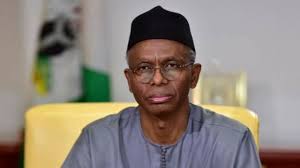![]()
The Presidential Election Petition Tribunal sitting in Abuja has fixed today (Wednesday) to commence pre-hearing session on four petitions that are seeking to invalidate President Muhammadu Buhari’s re-election. Buhari and Atiku.
The petitioners are separately challenging the declaration of President Buhari as the legitimate winner of the February 23 presidential election. Vanguard learned that the tribunal has already issued pre-hearing notice on all the parties.
Basically, the session affords the tribunal the opportunity to meet the parties with a view to setting up modalities to be adopted in the actual hearing of substantive issues in dispute. Meantime, aside the petition marked CA/PEPC/002/2019, which was entered against Buhari by the Peoples Democratic Party, PDP, and its candidate, Atiku, on March 18, the second petition marked CA/ PEPC/001/2019, was by the presidential candidate of the Hope Democratic Party, HDP, Chief Ambrose Owuru who secured a total of 1,663 in the election.
While the third petition, CA/PEPC/004/2019, was lodged by the presidential candidate of the Peoples Democratic Movement, PDM, Pastor Aminchi Habu, who is seeking a fresh election on the basis that his party’s logo was not included in the ballot paper.
The last petition with suit No. CA/PEPC/003/2019, was filed by the Coalition For Change, C4C and its presidential candidate, Geff Chizee Ojinka, who are contending that Buhari’s re-election was vitiated by substantial non-compliance with mandatory statutory provisions.
The petitioners maintained that the irregularity substantially affected the election, “such that the 1st Respondent was not entitled to be returned as the Winner of the Presidential election”. Remarkably, unlike in all the other petitions where only Buhari, the APC and INEC were cited as Respondents, the C4C, which garnered a total of 2,391 votes at the presidential poll, cited the Vice President, Prof. Yemi Osinbajo, as the 2nd Respondent in its case.
It will be recalled that the Independent National Electoral Commission, INEC, had on February 27, declared that Buhari garnered a total of 15,191,847 votes to defeat his closest rival, Alhaji Atiku Abubakar of the opposition PDP, who it said polled a total of 11,262,978 votes.
However, Atiku had almost immediately the result was announced, vowed to upturn it in court. Specifically, in their joint petition, Atiku and his party, insisted that data they secured from INEC’s server, revealed that they clearly defeated President Buhari with over 1.6million votes. The petitioners alleged that INEC had at various stages of the presidential election, unlawful allocated votes to President Buhari, saying they would adduce oral and documentary evidence to show that result of the election as announced by the electoral body, did not represent the lawful valid votes cast Atiku alleged that in some states, INEC, deducted lawful votes that accrued to him, in its bid to ensure that Buhari was returned back to office.
The petitioners said they would call evidence of statisticians, forensic examiners and finger-print experts at the hearing of the petition to establish that the scores credited to Buhari were not the product of actual votes validly cast at the polling units.
“The Petitioners plead and shall rely on electronic video recordings, newspaper reports, photographs and photographic images of several infractions of the electoral process by the Respondents”, they added.
More so, in one of the five grounds of the petition, Atiku and the PDP maintained that Buhari was not qualified to run for the office of the President, contending that he does not possess the constitutional minimum qualification of a school certificate. The petitioners serialised results that were recorded from each state of the federation in order to prove that the alleged fraudulent allocation of votes to Buhari and the APC, took place at the polling units, the ward collating centres, local government collating centres and the State collating centres.
They argued that proper collation and summation of the presidential election results would show that contrary to what INEC declared, Atiku, garnered a total of 18,356,732 votes, ahead of Buhari who they said got a total of 16,741,430 votes.
“The Petitioners state that Smart Card Readers deployed by the 1st Respondent, in addition to accreditation, equally transmitted electronically the results of voting from polling units directly to the server of the 1st Respondent.
“The Presiding Officers of the 1st Respondent directly inputted the results from the polling units at the end of voting and transmitted directly to the server, in addition to manually taking the Form EC8As to the Wards for collation.
“The 1st Respondent is hereby given notice to produce the records of results from each polling unit uploaded and transmitted electronically by officials of the 1st Respondent through smart card readers to the 1st Respondent’s Servers.
“The Petitioners plead and rely on the 1st Respondent’s Manual Technologies 2019, and notice is hereby given to the 1st Respondent to produce same at the trial. The 1st Respondent’s agents at the polling units used the Smart Card Reader for electronic collation and transmission of results.
“The Petitioners plead and shall rely on and play at the trial, the video demonstration by the 1st Respondent of the deployment of Smart Card Reader for authentication of accreditation and for transmission of data. Wherefore, the Petitioners pray jointly and severally against the Respondents as follows: “That it may be determined that the 2nd Respondent (Buhari) was not duly elected by a majority of lawful votes cast in the said election and therefore the declaration and return of the 2nd Respondent by the 1st Respondent as the President of Nigeria is unlawful, undue, null, void and of no effect. “That it may be determined that the 1st Petitioner (Atiku) was duly and validly elected and ought to be returned as President of Nigeria, having polled the highest number of lawful votes cast at the election to the office of the President of Nigeria held on 23rd February 2019 and having satisfied the constitutional requirements for the said election. “An order directing the 1st Respondent to issue Certificate of Return to the 1st Petitioner as the duly elected President of Nigeria.
“That it may be determined that the 2nd Respondent was at the time of the election not qualified to contest the said election. “That it may be determined that the 2nd Respondent submitted to the Commission affidavit containing false information of a fundamental nature in aid of his qualification for the said election”. In the alternative, the petitioners prayed the tribunal to nullify the February 23 presidential election and order a fresh poll.
However, in a swift reaction, both Buhari and the APC, filed preliminary objections to challenge the competence of the petitions, even as they challenged Atiku’s locus-standi to even participate in the Presidential poll. In his objection, Buhari described Atiku as a serial loser, boasting that he had always defeated him in every electoral contest that both of them took part in.
President Buhari insisted that electorates always chose him ahead of Atiku in both inter-party or intra-party contests, using the 2014 presidential primaries the All Progressives Congress, APC, as an instance.
“In particular, at the primary election conducted by the 3rd respondent (APC) in 2014, to pick its presidential candidate for the 2015 election, the 1st petitioner and respondent, amongst others, were the candidates; and while the respondent polled 3,430 votes, 1st petitioner came a distant third with 954 votes”. Besides, President Buhari, queried the powers of the tribunal to nullify his election victory at the poll, contending that the joint petition Atiku and the PDP entered against him was incompetent as it was based on conjectures.
Insisting that reliefs the petitioners are seeking from the tribunal were “vague, nebulous and lacking in specificity”, argued that most of the issues and grounds of the petition were not only “mutually exclusive”, but also outside the jurisdiction of the tribunal.
He contended that by virtue of section 31(5) and (6) of the Electoral Act, 2010, as amended, only the Federal High Court or High Court of a State has jurisdiction to adjudicate on some the issues, among which included the allegation that he was bereft of the requisite educational qualification. Buhari told the tribunal that contrary to Atiku’s allegation that he submitted false academic qualifications in the Form CF001 he used to secure clearance from the Independent National Electoral Commission, INEC, he said he was at the time of the election, “eminently qualified to contest the election, having not only the minimum qualification of reading up to secondary school level, but rose to the peak of his career as a General in the Nigerian Army with cognate experience and training.
Buhari said he has more educational qualification than Atiku. Likewise, his party, the APC, in its own objection, branded Atiku an alien, alleging that he is not a Nigerian by birth and therefore was not qualified to contest the February 23 presidential poll. APC told the tribunal that the PDP candidate is a Cameroonian.
According to APC, Atiku, was born on November 25, 1946 in Jada, Adamawa, in Northern Cameroon and is therefore a citizen of Cameroon and not a Nigerian by birth. It told the tribunal that prior to 1919, Cameroon was being administered by Germany, adding that following the defeat of Germany in World War 1, which ended in 1918, Cameroon, became part of a League of Nations mandate territory which consisted of French Cameroon and British Cameroon in 1919. APC noted that in 1961, a plebiscite was held in British Cameroon to determine whether the people preferred to stay in Cameroon or align with Nigeria. It stressed that while Northern Cameroon preferred a union with Nigeria, the Southern Cameroon chose alignment with the mother country, saying it was as a result of the plebiscite that Northern Cameroon, which included Adamawa, became part of Nigeria. The ruling party argued that contrary to Atiku’s claims in his petition, he had no right to be voted for as a candidate in the election to the office of President of the Federal Republic of Nigeria held on February 23, 2019.
Buhari, APC, out to cover corruption, incompetence- PDP It averred that by reason of Atiku’s ineligibility to contest the election, all votes credited to him and the PDP in the February 23 election ought to be deemed as wasted votes. APC contended that most of the claims contained in Atiku’s petition have become statute barred, arguing that the Tribunal was therefore bereft of the jurisdiction to entertain it.
Atiku maintained that he is a full-blooded Nigerian, even as he urged the tribunal to ignore what he termed as “extraneous facts, contradictory, diversionary, evasive, speculative and vague assertions”, by both the APC and President Buhari. Atiku told the tribunal that contrary to APC’s allegation that he is an alien, he said he is a Nigerian by birth and a Fulani by tribe, adding that his parents were from Jigawa and Sokoto states. However, in a further response he filed before the tribunal, Atiku, rebuked the APC, describing the allegation that he is a Cameroonian as puerile, face saving, vexatious, absolutely and completely unfounded.




